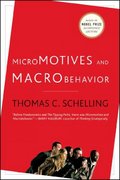Question
Case Study: The Price Wars of Christmas Idea Oligopolistic competition on Thanksgiving(this article was written before COVID19 pandemic.) Next Thanksgiving dinner, the big box retailersWalmart,
Case Study: The Price Wars of Christmas Idea
Oligopolistic competition on Thanksgiving(this article was written before COVID19 pandemic.)
Next Thanksgiving dinner, the big box retailersWalmart, Target, Best Buy, and Macy'swant you to miss dessert. It's not for concern over your waistline. Rather, they hope that instead of eating dessert you will be in their stores, which will open at 6pm on Thanksgiving Day. Starting in the 1980s, retailers began promoting Black Friday sales (on the Friday after Thanksgiving)to kick-off the holiday sales season, eventually making it the biggest revenue-generating day of the year. Each year, retailers have ratcheted up their efforts to capture consumers' dollars by repeatedly extending their holiday sales periods and offering deeper discounts. Black Friday became known for snarled traffic, overwhelmed sales staff, pushy shoppers, and long lines. Despite the aggressive selling, in recent years consumer fatigue has set in. One source of this fatigue can be traced to retailers' own actions. Eager to ring up more sales, retailers have filled the entire calendar year with sale days, whether it's Valentine's Day, Labor Day, President's Day, Easter, or back- to-school time. Both Amazon and Target run "Black Friday in July" sales. In addition, consumers have come to expect sale prices year-round, not just during the holiday season. And, increasingly, shoppers are letting their fingers do the shopping by turning to online purchases, where they can find deals as good as those in the stores. Some stores have taken the hint. In 2015, REI, an outdoor equipment retailer, closed both its door sand its website on Black Friday. Likewise, T.J. Maxx and GameStop weren't open either. So why do the big box stores like Target and Walmart continue to pile on the Black Friday sales? According toTraci Gregorski, a market analyst, it's because unlike stores like REI that cater to a niche market, big box retailers "don't really have a choice but to compete. They have to beat the other [rival] stores to the punch. Timing is of the essence." For big box retailers, every dollar spent at a rival store is a dollar lost. As a result, we have the phenomenon known as "creeping Christmas" as the Price Wars of Christmas arrive earlier and stay longer each year.
Questions to answer
1), Briefly explain what the case study is about, summarize it!
Step by Step Solution
There are 3 Steps involved in it
Step: 1

Get Instant Access to Expert-Tailored Solutions
See step-by-step solutions with expert insights and AI powered tools for academic success
Step: 2

Step: 3

Ace Your Homework with AI
Get the answers you need in no time with our AI-driven, step-by-step assistance
Get Started


